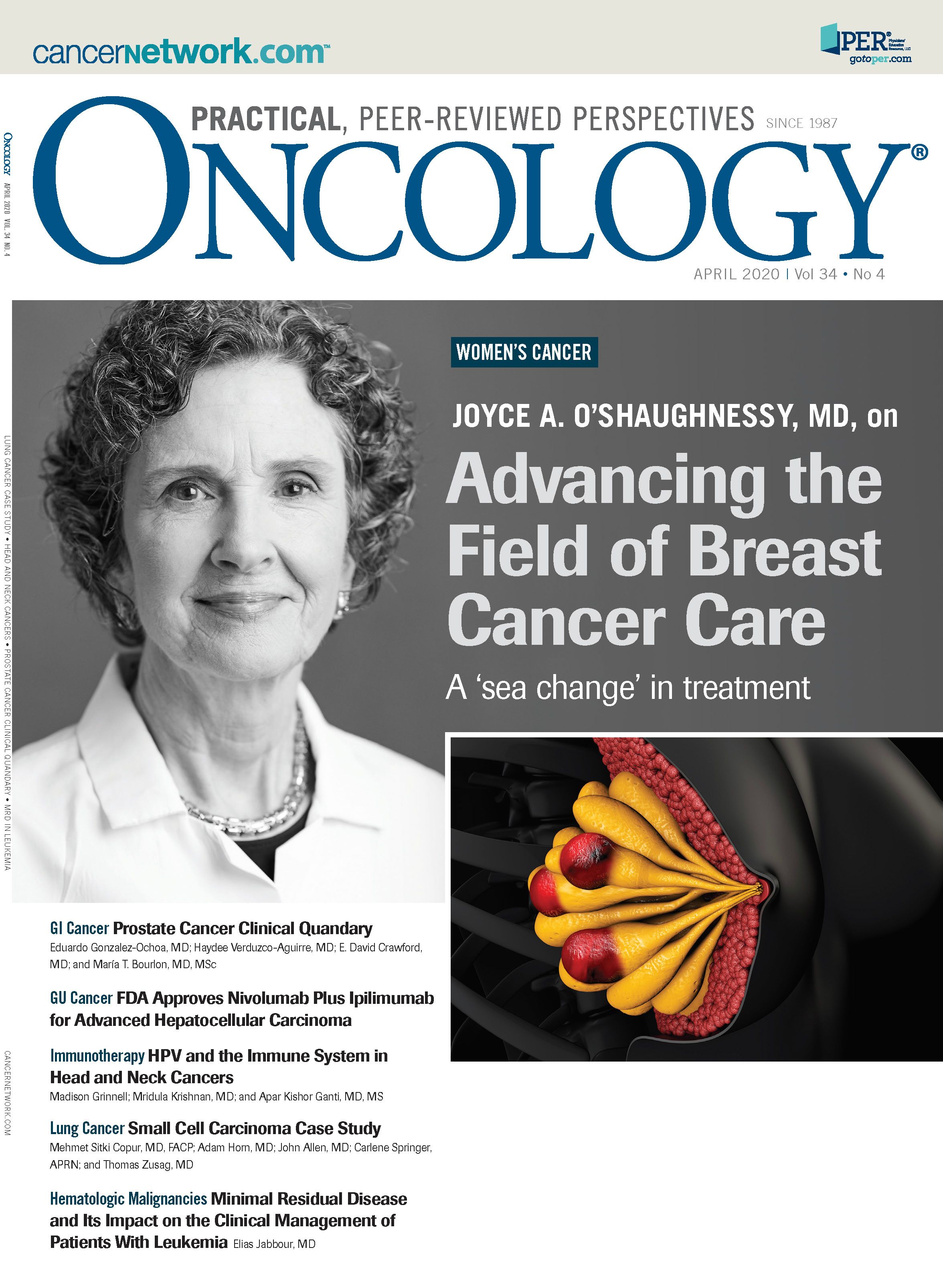FDA Approves Nivolumab Plus Ipilimumab for the Treatment of Advanced HCC
The FDA granted accelerated approval nivolumab plus ipilimumab for the treatment of advanced hepatocellular carcinoma in patients who were previously treated with sorafenib.
The FDA granted accelerated approval for the combination use of nivolumab (Opdivo) plus ipilimumab (Yervoy) for the treatment of patients with hepatocellular carcinoma (HCC) who received prior treatment with sorafenib (Nexavar).1 The agency’s approval is based on cohort findings from the phase I/II CheckMate-040 trial (NCT01658878), which demonstrated an objective response rate (ORR) of 33% (95% CI, 20-48) in patients who received the nivolumab and ipilimumab combination.
At a median follow-up of 28 months, 16 of 49 (33%) patients responded to treatment, with 4 (8%) experiencing a complete response (CR), and 12 (24%) demonstrating a partial response (PR). Additionally, the duration of response (DOR) ranged from 4.6 to 30.5+ months, with 88% of responses lasting at least 6 months, 56% lasting at least 12 months, and 31% of responses lasting 24 months or longer. Blinded independent central review (BICR) using modified Response Evaluation Criteria in Solid Tumors (RECIST) assessed ORR at 35% (95% CI, 22-50), with a CR reported in 12% of patients and a PR reported in 22%.
The FDA granted the approval on March 10, 2020, at a dose of 1 mg/kg of nivolumab and 3 mg/kg of ipilimumab. The treatment becomes the only dual immunotherapy approved by the FDA in this setting.
“HCC is an aggressive disease in need of different treatment approaches,” said Anthony B. El-Khoueiry, MD, lead investigator and associate professor of clinical medicine and phase I program director at the Keck School of Medicine, University of Southern California (USC) and the USC Norris Comprehensive Cancer Center, in a statement. “The ORR observed in the Opdivo plus Yervoy cohort of the CheckMate-040 trial underscores the potential of this dual immunotherapy as a possible treatment option for patients.”
Patients were randomized 1:1:1 to one of 3 dosing schedules with the combination, and treatment continued until unacceptable intolerability or disease progression. Arm A (n = 50) was given 1 mg/kg of nivolumab plus 3 mg/kg of ipilimumab every 3 weeks for 4 cycles, arm B (n = 49) was given 3 mg/kg of nivolumab plus 1 mg/kg of ipilimumab every 3 weeks for 4 cycles, and arm C (n = 49) received nivolumab at 3 mg/kg every 2 weeks plus ipilimumab at 1 mg/kg every 6 weeks. Patients in arms A and B were then given a flat dose of nivolumab 240 mg intravenously every 2 weeks.2
The majority of patients in all 3 arms (A, 88%; B, 85%; C, 79%) had discontinued sorafenib due to disease progression. Primary end points of the trial included safety and tolerability; key secondary end points were ORR (BICR per RECIST v1.1), DOR, and overall survival.
Serious adverse events (AEs) occurred in 59% of patients receiving the combination; treatment was discontinued in 29% of patients and delayed in 65% of patients experiencing an AE. Serious AEs reported in at least 4% of patients were pyrexia, diarrhea, anemia, increased aspartate aminotransferase, adrenal insufficiency, ascites, esophageal varices hemorrhage, hyponatremia, increased blood bilirubin, and pneumonitis. The most common adverse reactions (reported in ≥20% of patients) were rash (53%), pruritus (53%), musculoskeletal pain (41%), diarrhea (39%), cough (37%), decreased appetite (35%), fatigue (27%), pyrexia (27%), abdominal pain (22%), headache (22%), nausea (20%), dizziness (20%), hypothyroidism (20%), and weight decreased (20%).
Since 1980, liver cancer incidence rates have more than tripled, with an estimated 42,810 new cases expected to be diagnosed in 2020. Death rates have more than doubled in the same time period.3
“The incidence of liver cancer is rising in the United States, and HCC is the most common and aggressive form of the disease,” a spokesperson from Bristol Myers Squibb told ONCOLOGY®. “Patients with advanced HCC who relapse on first-line therapy are in need of new options.”
Continued approval for this indication is contingent upon verification and description of clinical benefit in confirmatory trials.
Financial Disclosure: The authors have no significant financial interest in or other relationship with the manufacturer of any product or provider of any service mentioned in this article.
References:
1. U.S. Food and Drug Administration approves Opdivo (nivolumab) + Yervoy (ipilimumab) for patients with hepatocellular carcinoma (HCC) previously treated with sorafenib [news release]. Princeton, NJ: Bristol Myers Squibb; March 11, 2020. https://news.bms.com/press-release/corporatefinancial-news/us-food-and-drug-administration-approves-opdivo-nivolumab-ye-0. Accessed April 2, 2020.
2. El-Khoueiry AB, Hsu C, Kang YK, et al. Safety profile of nivolumab (NIVO) plus ipilimumab (IPI) combination therapy in patients with advanced hepatocellular carcinoma (HCC) in the CheckMate 40 study. Presented at: 13th Annual Conference of the International Liver Cancer Association; September 20-22, 2019; Chicago, IL. Abstract O-13. ilca-online.org/wp-content/uploads/2019/09/ABSTRACTS-2019-min.pdf.
3. American Cancer Society. Key Statistics About Liver Cancer. American Cancer Society website. https://www.cancer.org/cancer/liver-cancer/about/what-is-key-statistics.html. Accessed April 3, 2020.
